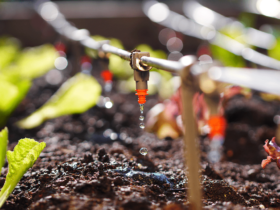Making your home more energy efficient is one of the best ways to save money and protect the environment. Many people waste energy without realizing it, which increases electricity bills and harms the planet. The good news is that even small changes can make a big difference.
By improving insulation, using energy-saving appliances, and maintaining your heating and cooling systems, you can reduce your energy use and enjoy a more comfortable home. Here are five simple yet effective tips to help you make your home more energy efficient.
1. Improve Home Insulation
Good insulation keeps your home warm in winter and cool in summer without using too much energy. Many homes lose a lot of heat through the roof, walls, and windows. Adding insulation in these areas helps stop energy loss and keeps the indoor temperature steady.
You can use materials like fiberglass, foam, or cellulose insulation to fill gaps and cracks. Also, sealing doors and windows with weatherstrips prevents drafts that make your heating or cooling system work harder.
2. Switch to Energy-Efficient Appliances
Old appliances often use more energy than new, efficient models. When you buy new ones, look for the Energy Star label, which means the appliance meets high energy-saving standards. Energy-efficient refrigerators, washing machines, and ovens use less electricity and still perform well.
Replacing just one or two old appliances can make a big difference over time. It is also smart to unplug devices when not in use because many continue to draw power even when turned off.
3. Look for Portable Air Conditioner Options
Cooling is a big part of energy use in most homes, especially during hot months. A portable air conditioner is a great option if you want comfort without high energy costs. Unlike central air systems, a portable air conditioner allows you to cool one room at a time, so you do not waste energy cooling unused areas.
Many modern portable air conditioners are energy efficient and come with smart settings that adjust temperature automatically. You can move them easily between rooms, which helps control cooling costs.
4. Consider Timely Heater Repair
In cold weather, heating can use a lot of energy, especially if your system is not working properly. Regular maintenance and heater repair keep your system running efficiently and safely. When a heater has problems, it may take longer to warm your home, using more energy in the process.
Having your heater checked by a professional at least once a year ensures it operates smoothly and does not waste fuel or electricity. Timely repairs also extend the life of your heating system, helping you avoid expensive replacements.
5. Use Natural Light and Ventilation
Natural light is a free and effective way to reduce energy use. Opening curtains and blinds during the day can brighten your home without turning on electric lights. Sunlight can also help warm your space naturally in winter.
For fresh air, open windows to let cool breezes in instead of always using fans or air conditioning. Good ventilation keeps the indoor air clean and reduces the need for energy-hungry cooling systems.
Conclusion
Making your home energy efficient does not require major renovations or expensive upgrades. Small, consistent actions such as improving insulation, maintaining appliances, and repairing your heater can make a big difference.
Choosing efficient solutions like a portable air conditioner or using natural light helps you save money while caring for the environment. Every improvement adds up, creating a home that is comfortable, cost-effective, and sustainable for the future.







Leave a Reply